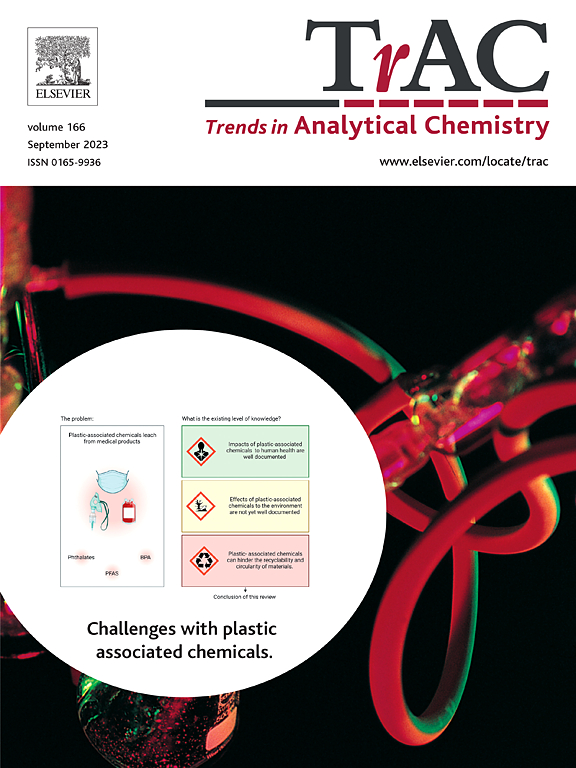革新食品完整性:利用集成学习算法的力量
IF 12
1区 化学
Q1 CHEMISTRY, ANALYTICAL
引用次数: 0
摘要
术语“集成学习”是指机器学习(ML)中的一类技术,它混合了多种单独的模型,即所谓的基础学习器,以提高性能并增强整体模型的鲁棒性。在食品完整性的背景下,真实性、安全性和质量是至关重要的方面,多年来,集成学习方法变得流行起来。由于集成学习算法在食品分析中的广泛适用性,本综述的目的是以简化的方式向广大受众介绍集成学习的原理,而不需要复杂的数学细节和公式。此外,还涵盖了集成学习算法在食品分析各个领域的典型应用。由于集成方法具有较高的预测能力,因此可用于构建食品完整性问题的鲁棒模型。基于集成学习的技术在准确性、灵敏度和特异性方面通常比经典ML方法具有更好的预测结果。本文章由计算机程序翻译,如有差异,请以英文原文为准。
Revolutionizing food integrity: Harnessing the power of ensemble learning algorithms
The term “ensemble learning” refers to a class of techniques in machine learning (ML) that blends manifold individual models, so-called base learners to improve the performance and enhance the robustness of the overall model. In the context of food integrity, where authenticity, safety and quality are crucial aspects, ensemble learning methods have become popular over the years. Due to the vast applicability of ensemble learning algorithms in food analysis, the objective of this review is to introduce the principles of ensemble learning to a broad audience in a simplified way without complex mathematical details and formulas. Moreover, typical applications of ensemble learning algorithms in various fields of food analyses are covered. As ensemble methods feature high predictive power, they are useful for building robust models in food integrity problems. Techniques based on ensemble learning have usually better prediction results in terms of accuracy, sensitivity, and specificity than classical ML methods.
求助全文
通过发布文献求助,成功后即可免费获取论文全文。
去求助
来源期刊

Trends in Analytical Chemistry
化学-分析化学
CiteScore
20.00
自引率
4.60%
发文量
257
审稿时长
3.4 months
期刊介绍:
TrAC publishes succinct and critical overviews of recent advancements in analytical chemistry, designed to assist analytical chemists and other users of analytical techniques. These reviews offer excellent, up-to-date, and timely coverage of various topics within analytical chemistry. Encompassing areas such as analytical instrumentation, biomedical analysis, biomolecular analysis, biosensors, chemical analysis, chemometrics, clinical chemistry, drug discovery, environmental analysis and monitoring, food analysis, forensic science, laboratory automation, materials science, metabolomics, pesticide-residue analysis, pharmaceutical analysis, proteomics, surface science, and water analysis and monitoring, these critical reviews provide comprehensive insights for practitioners in the field.
 求助内容:
求助内容: 应助结果提醒方式:
应助结果提醒方式:


